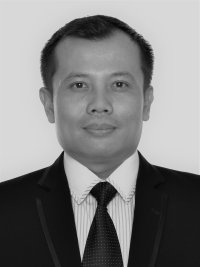Col. Bangkit Rahmat Tri Widodo, MA

Political Cohesion Under Stress? Civil-Military Relations in Post-Authoritarian Indonesia
The purpose of this study is to examine the political cohesion in Post-Authoritarian Indonesia, specifically related to the Civil-Military relations. The dynamic political cohesion is commonly persisted during a democratic transition. Civil-Military relations is one of the aspects which essentially contributes to the level of political cohesion.
Since the end of the New Order era in 1998, the Indonesian military (Tentara Nasional Indonesia or TNI) has forced to withdraw from formal politics, strengthen civilian oversight and professionalize the armed forces, even if they sought to maintaining their standing within Indonesian society. The reform process ensues the TNI’s political neutrality. But political neutrality, especially in emerging democracies, is rarely a binary state—the military is either neutral or partisan. Instead, the political neutrality of the military in post-authoritarian countries tends to vary in a spectrum.
This study will explore the political cohesion in Post-Authoritarian Indonesia. The military political neutrality and civil-military relations maturity are the key aspects to be elaborated. Military political neutrality is examined through the level of institutionalization of democratic norms within the organization to establish institutional self-control against own vested interests. Military political neutrality also depicts to what extent the military is politically neutral, practically, and rhetorically. Meanwhile, civil-military relations maturity describes the level of concordant relationships between the military the executive, the legislature, other security sector apparatus and the wider public (society). The cohesion amongst those stakeholders would draw the political cohesion pattern during the democratic transition in Post-Authoritarian Indonesia.
Supervision: Prof. Dr. Christoph Schuck
Contact: bangkit.triwidodo@gmail.com
